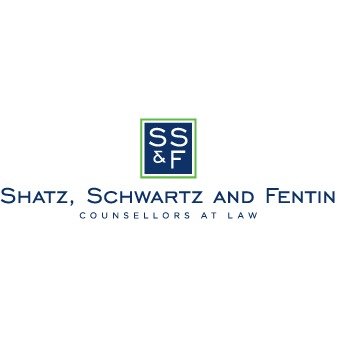Best Housing, Construction & Development Lawyers in Massachusetts
Share your needs with us, get contacted by law firms.
Free. Takes 2 min.
Free Guide to Hiring a Real Estate Lawyer
Or refine your search by selecting a city:
List of the best lawyers in Massachusetts, United States
About Housing, Construction & Development Law in Massachusetts, United States
Housing, Construction, and Development law in Massachusetts covers the rules, regulations, and legal procedures governing residential and commercial property, building projects, zoning, land use, landlord-tenant relationships, and affordable housing initiatives. This area of law addresses the rights of homeowners, tenants, landlords, builders, and developers. Massachusetts is known for a robust regulatory framework intended to safeguard the interests of all parties involved in housing and construction, while also promoting community development, safety, and fair access to housing.
Why You May Need a Lawyer
Legal situations in the housing, construction, and development sectors can be complex in Massachusetts. You may require a lawyer’s help if you face any of the following:
- Disputes between landlords and tenants, such as eviction, rent issues, or repairs
- Problems with home purchases, home sales, or real estate closings
- Construction contract disputes, non-payment, or contractor complaints
- Building code violations or unpermitted work
- Zoning and land use challenges or appeals
- Boundary disputes or easement disagreements with neighbors
- Foreclosure proceedings or mortgage issues
- Issues related to affordable housing or housing discrimination
- Permitting, compliance, and regulatory review for new developments
A knowledgeable lawyer can help interpret the law, negotiate on your behalf, represent you in court, and ensure your rights are protected.
Local Laws Overview
Massachusetts has its own set of laws and regulations concerning housing, construction, and development. Some key aspects include:
- Landlord-Tenant Law: Massachusetts General Laws Chapter 186 and Chapter 239 cover security deposits, lease terms, eviction procedures, repairs, and tenant protections.
- Building Codes and Permits: Statewide building codes set standards for safety and quality. Most construction projects require permits issued by local building departments.
- Zoning and Land Use: Zoning regulations are set locally and control how property can be used (residential, commercial, mixed-use, etc). Local Zoning Boards hear appeals for variances and special permits.
- Housing Discrimination: State and federal fair housing laws prohibit discrimination based on race, religion, gender, disability, family status, and other protected classes.
- Affordable Housing: Laws such as Chapter 40B allow developers to bypass some local zoning laws to create affordable housing if a community falls below certain thresholds.
- Home Improvement Contractor Law: Contractors must register with the state, and homeowners have protections regarding contracts and warranties for home improvements.
Local city and town bylaws may add further requirements, and overlapping state and federal law can sometimes create additional complexities.
Frequently Asked Questions
What should I do if my landlord refuses to make necessary repairs?
Document the requested repairs and any communication with your landlord. In Massachusetts, tenants have the right to request essential repairs, and landlords are generally required to keep rental properties in habitable condition. If requests are ignored, you may contact your local Board of Health, withhold rent under certain conditions, or seek legal help.
How can I dispute a zoning decision by my city or town?
You have the right to appeal zoning decisions to the local Zoning Board of Appeals. If unsatisfied with the outcome, further appeals can be made to the state Land Court or Superior Court, often requiring legal representation.
Do I need a permit to make renovations to my home?
Most structural, plumbing, electrical, or major interior renovations require a building permit from your local building department. Failure to get the proper permits can result in fines and challenges when selling your home.
What are my rights if I am facing eviction?
Massachusetts law requires landlords to follow specific eviction procedures, including providing formal notice and filing in court. Tenants have the right to contest the eviction and seek legal representation. Illegal evictions, such as locking you out or shutting off utilities, are prohibited.
Can a contractor put a lien on my property?
Yes, contractors, subcontractors, and some suppliers can file a mechanic’s lien if not paid for work performed. To avoid a lien, ensure all payments, contracts, and invoices are well documented.
What protections do homebuyers have in Massachusetts?
Massachusetts offers several protections for homebuyers, including seller disclosure obligations, home inspection options, and protections against fraudulent practices. Reviewing all paperwork with a real estate attorney is strongly recommended.
How is affordable housing developed and regulated?
State programs like Chapter 40B allow certain developments with affordable housing components to move forward with reduced zoning restrictions. Oversight is provided by state agencies and local boards, with ongoing compliance checks.
What can I do about construction defects after moving into a new home?
Massachusetts law allows homeowners to seek recovery for construction defects under certain warranties and contracts. Documentation and swift reporting are important. Legal advice may be required if disputes arise.
Are there any restrictions on converting a multi-family home into condos?
Yes, local zoning, permitting processes, and, in many cases, notification requirements for tenants may apply. There are also state and federal laws regarding tenant rights during conversion.
How do I report housing discrimination?
Complaints can be made to the Massachusetts Commission Against Discrimination (MCAD), the Department of Housing and Urban Development (HUD), or local fair housing agencies. Retain documentation and consider consulting a fair housing lawyer.
Additional Resources
- Massachusetts Division of Professional Licensure - Office of Public Safety and Inspections
- Massachusetts Department of Housing and Community Development (DHCD)
- Massachusetts Commission Against Discrimination (MCAD)
- Local city and town building departments
- U.S. Department of Housing and Urban Development (HUD)
- Legal Services Center of Harvard Law School
- Greater Boston Legal Services (GBLS)
- Mass Legal Help (resource for tenants and homeowners)
- Consumer Affairs and Business Regulation: Home Improvement Contractors
Next Steps
If you need legal assistance with a housing, construction, or development issue in Massachusetts, start by gathering all relevant documents, contracts, and written correspondence. Consider reaching out to local legal aid organizations or consulting with a qualified attorney who has experience in Massachusetts real estate and housing law. Many lawyers offer initial consultations where they can review your situation and advise you on the best course of action. Be sure to act promptly, as many legal claims are subject to strict deadlines.
Understanding your rights and obligations can help you make informed decisions and avoid common pitfalls in the areas of housing, construction, and development in Massachusetts.
Lawzana helps you find the best lawyers and law firms in Massachusetts through a curated and pre-screened list of qualified legal professionals. Our platform offers rankings and detailed profiles of attorneys and law firms, allowing you to compare based on practice areas, including Housing, Construction & Development, experience, and client feedback.
Each profile includes a description of the firm's areas of practice, client reviews, team members and partners, year of establishment, spoken languages, office locations, contact information, social media presence, and any published articles or resources. Most firms on our platform speak English and are experienced in both local and international legal matters.
Get a quote from top-rated law firms in Massachusetts, United States — quickly, securely, and without unnecessary hassle.
Disclaimer:
The information provided on this page is for general informational purposes only and does not constitute legal advice. While we strive to ensure the accuracy and relevance of the content, legal information may change over time, and interpretations of the law can vary. You should always consult with a qualified legal professional for advice specific to your situation.
We disclaim all liability for actions taken or not taken based on the content of this page. If you believe any information is incorrect or outdated, please contact us, and we will review and update it where appropriate.
Browse housing, construction & development law firms by city in Massachusetts
Refine your search by selecting a city.












